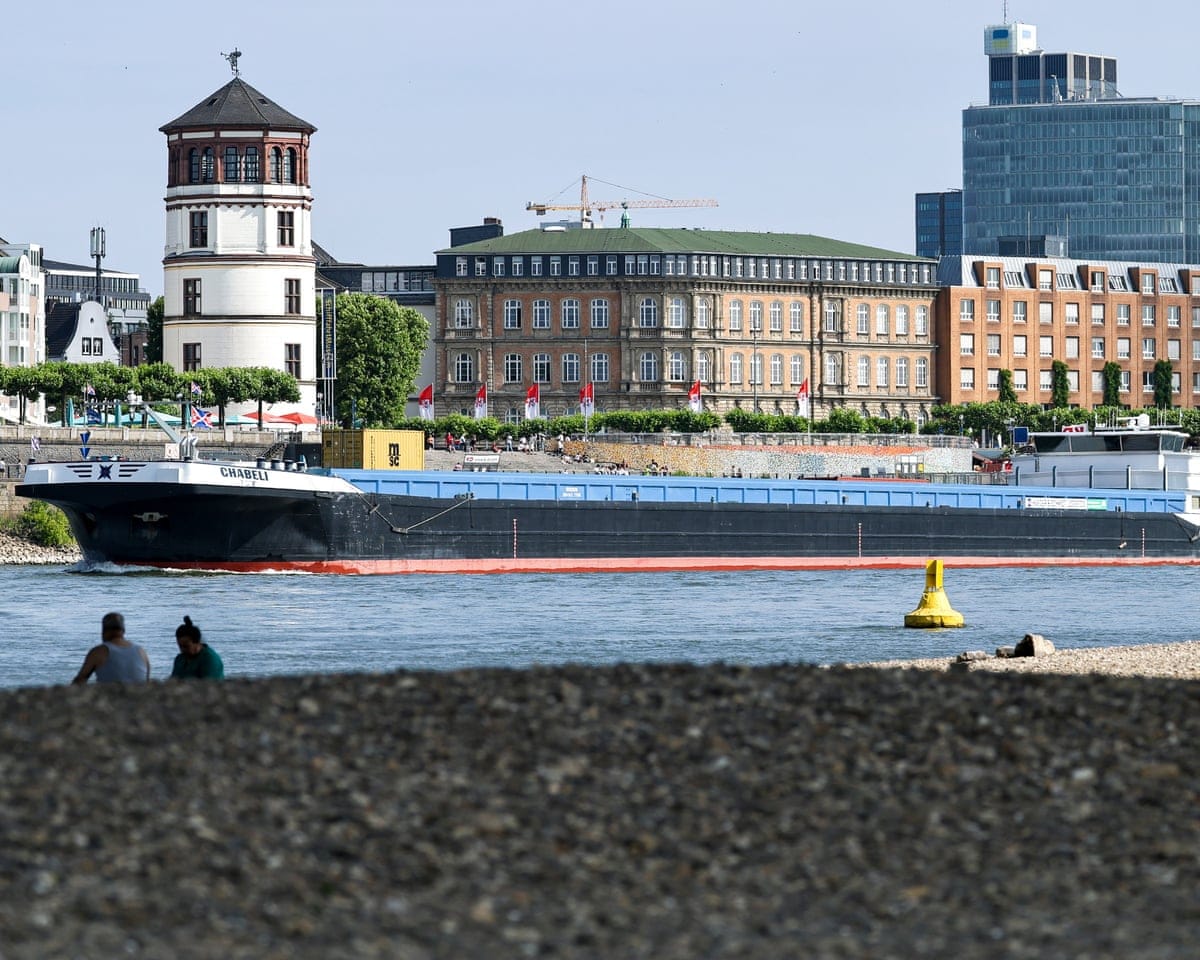Here’s the reworked version of the article while preserving the original meaning and structure:
Low Water Levels Disrupt Shipping on Major European Rivers
Persistent heatwaves and drought have reduced water levels in several of Europe’s largest rivers, including the Rhine and the Danube, disrupting shipping and increasing transport expenses.
Much of the continent is experiencing high temperatures, leading to notably shallow conditions along the Rhine—a critical European waterway—particularly south of Germany’s Duisburg and Cologne. At Kaub, a key bottleneck area, vessels can only navigate at roughly half their usual capacity.
Commodity traders noted that recent rainfall provided only slight relief, with water levels rising marginally.
Due to low water, shipping companies have introduced additional charges to offset losses from underfilled vessels, driving up costs for cargo operators. Traders told *CuriosityNews* that goods typically transported on a single ship now require multiple barges.
The Rhine, central and western Europe’s second-longest river after the Danube, handles nearly 200 million tons of cargo annually, including coal, vehicle parts, grain, food, and chemicals.
In Hungary, unusually low water levels on the Danube have hindered both shipping and agriculture, as Budapest recently saw temperatures reach 35°C. Attila Bencsik, deputy head of the Hungarian Shipping Association, stated that ships are now forced to operate at 30-40% capacity, leaving more than half their usual cargo behind.
Poland’s Vistula River, the country’s longest, has hit its lowest recorded water level in Warsaw after weeks of temperatures above 30°C and minimal rainfall.
A similar situation three years ago caused supply delays and production issues in Germany when drought and extreme heat led to critically low water levels on the Rhine.
During that period, France’s EDF temporarily reduced output at nuclear plants along the Rhône and Garonne rivers as high temperatures limited the use of river water for cooling.
Forecasts suggest Germany may see some rainfall soon, potentially easing conditions on the Rhine.
The dry spell has also affected other regions. In Yorkshire, reservoir levels continue to drop sharply. Data from Yorkshire Water, which serves over 5 million people, showed reserves falling from 63% in May to 55.8% in June—far below the seasonal average of 81.9%.
With most of the summer remaining, reserves are nearing half-capacity. Yorkshire’s reservoirs have been declining since late January due to the driest spring in 132 years, combined with England’s hottest June on record. Higher water demand during warm weather has further strained supplies, with customers using nearly 1.5 billion liters on 30 June—200 million liters above typical daily output.
Read next

Ryanair plane had only six minutes of fuel upon Manchester landing, records show
Flight Narrowly Avoids Disaster After Storm Diversion
An inquiry has been launched after a Ryanair flight, struggling against severe winds during storm Amy last week, landed at Manchester Airport with only six minutes’ worth of fuel remaining.
The aircraft had been transporting passengers from Pisa, Italy, to Prestwick, Scotland, on

"Qantas customer data for 5 million exposed as hackers release info post-ransom deadline"
Hackers Leak Personal Data of 5 Million Qantas Customers on Dark Web
A cybercriminal group has released personal records of 5 million Qantas customers on the dark web after the airline did not meet their ransom demand.
The breach is part of a larger global incident affecting over 40 companies,

Investors flee record-high UK stocks as EU set to hike steel tariffs
Investors Withdraw Record Sums from Equity Funds Amid High Market Valuations
Data reveals that investors in the UK have withdrawn an unprecedented amount of money from equity funds over the past three months, driven by concerns over soaring stock market valuations.
According to the latest figures from Calastone, the largest

